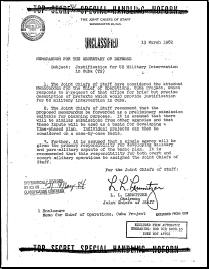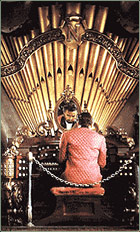|
This is my dynamic, frequently updated homepage. This is a NewsLog, also known as a WebLog or Blog.
Everything is evolving, so don't assume too much.
People to watch:
Adina Levin
Andrius Kulikauskas
Britt Blaser
Catherine Austin Fitts
Chris Corrigan
Clay Shirky
Dan Gillmor
Dave Pollard
David Allen
David Weinberger
Dewayne Mikkelson
Dina Mehta
Doc Searls
Elisabet Sahtouris
Elizabeth Lawley
Euan Semple
Florian Brody
Frank Patrick
Gen Kenai
George Dafermos
George Por
Graham Hancock
Greg Elin
Hazel Henderson
Heiner Benking
Inspector Lohman
Jean Houston
Jerry Michalski
Jim McGee
Jim Moore
John Abbe
John Perry Barlow
John Robb
Joi Ito
Jon Husband
Jon Lebkowsky
Jon Udell
Jonathan Peterson
Judith Meskill
Julian Elvé
Julie Solheim
Kevin Marks
Lawrence Lessig
Leif Smith
Letecia Layson
Lilia Efimova
Lisa Rein
Marc Canter
Mark Oeltjenbruns
Mark Pilgrim
Mark Woods
Martin Dugage
Martin Roell
Mary Forest
Matt Mower
Max Sandor
Michael Fagan
Mike Owens
Mikel Maron
Mitch Kapor
Mitch Ratcliffe
Nathalie dArbeloff
Netron
Noam Chomsky
Paul Hughes
Peter Kaminski
Phil Wolff
Philippe Beaudoin
Ray Ozzie
Raymond Powers
Rebecca Blood
Roger Eaton
Roland Tanglao
Ross Mayfield
Scott Lemon
Sebastian Fiedler
Sebastien Paquet
Skip Lancaster
Spike Hall
Steven Johnson
Stuart Henshall
Thomas Burg
Thomas Madsen-Mygdal
Thomas Nicholls
Timothy Wilken
Todd Suomela
Tom Atlee
Tom Munnecke
Tom Tomorrow
Ton Zijlstra
Lionel Bruel
Loic Le Meur
Nancy White
Mark Frazier
Merlin Silk
Robert Paterson
Colby Stuart
Nova Spivack
Dan Brickley
Ariane Kiss
Vanessa Miemis
Bernd Nurnberger
Sites to watch:
Edge
Junto
Absara
Rhizome
Nanodot
HeadMap
Openworld
FutureHi
Imaginify
Do No Harm
BoingBoing
Smart Mobs
Webcamorama
MetaFilter
NotThisBody
Disinfopedia
YES Magazine
Collective Web
WorldChanging
Disinformation
Escape Velocity
Space Collective
Friendly Favors
Emergent by Design
Independent Media
Global Ideas Bank
Forbidden Science
Greater Democracy
ThoughtsOnThinking
Disclosure Project
Explorers Foundation
Manufacturing Dissent
Collective Intelligence
Action without borders
Free Expression Network
Co-intelligence Institute
Electronic Frontier Foundation
French:
Emmanuelle
Manur
Elanceur
Loeil de Mouche
IokanaaN
Blog d'Or
Le Petit Calepin
GeeBlog
Absara
Guillaume Beuvelot
Ming Chau
Serge Levan
Jean Michel Billaut
C'est pas Mécanique

I live in Toulouse, France where the time now is:
01:06
Unique Readers:

Primarily
Public Domain
Everything I've written here is dedicated to the
Public Domain.

The quotes from other people's writings, and the pictures used might or might not be copyrighted, but are considered fair use. Thus, overall, this weblog could best be described as being:
Primarily Public Domain. |
Syndication:
 ![Validate my RSS feed [Valid RSS]](http://www.newciv.org/pic/valid-rss.png)
|
| Monday, March 3, 2003 |  |
|
|
|
 Westerville, Ohio is installing a 250-kilowatt fuel cell, which will power 180 homes. It is apparently the first of its kind in the U.S. It will be a 28-foot-long, 85,000-pound unit, built by FuelCell Energy of Danbury, Connecticut. As any other fuel cell, it generates energy from hydrogen by a simple chemical process. In this 'direct' approach, natural gas is the source, and the hydrogen doesn't even have to be separated out from the gas first. The unit makes little noise. Nothing is burned and it simply produces water which will be discharged directly into a city sewer. The electricity produced will still cost more than electricity produced by conventional means, but it is part of a more long term plan. As part of its Third Frontier initiative, Ohio plans to spend $103 million on fuel-cell research during the next three years. Westerville, Ohio is installing a 250-kilowatt fuel cell, which will power 180 homes. It is apparently the first of its kind in the U.S. It will be a 28-foot-long, 85,000-pound unit, built by FuelCell Energy of Danbury, Connecticut. As any other fuel cell, it generates energy from hydrogen by a simple chemical process. In this 'direct' approach, natural gas is the source, and the hydrogen doesn't even have to be separated out from the gas first. The unit makes little noise. Nothing is burned and it simply produces water which will be discharged directly into a city sewer. The electricity produced will still cost more than electricity produced by conventional means, but it is part of a more long term plan. As part of its Third Frontier initiative, Ohio plans to spend $103 million on fuel-cell research during the next three years.
[ Technology | 2003-03-03 23:59 | | PermaLink ] More >
|
|
|
|
 Zope seems to be popping up in front of me more frequently recently. Zope is an ingenious, unique, dynamic, modular, web-based software environment written in the Python language. I've had it running on my server since several years, and for a while back then I was really gung ho about it, and was planning on doing all my development in Zope. There's lots of ready-made freely available modules for Zope that very easily makes it do lots of useful things, without any real programming. But when I tried to implement one of my own projects from scratch in Zope I ended up so thoroughly frustrated that I gave the whole thing up. Well, what frustrated me so deeply was the DTML scripting language, which seemed to stop me from doing even the simplest things I wanted to do, for no good reason. I understand things have changed greatly and there are new versions and new frameworks for how to do things, which all sounds exciting. So maybe I should explore that world again. Zope 3's 'Component Architecture' sounds very compelling. I was today looking at a couple of weblogs by prominent Zope people. Jeffrey Shell is a programmer responsible for some key pieces of Zope. Paul Everitt is the former CEO of DigiCool, the company that develops the core of Zope. Zope seems to be popping up in front of me more frequently recently. Zope is an ingenious, unique, dynamic, modular, web-based software environment written in the Python language. I've had it running on my server since several years, and for a while back then I was really gung ho about it, and was planning on doing all my development in Zope. There's lots of ready-made freely available modules for Zope that very easily makes it do lots of useful things, without any real programming. But when I tried to implement one of my own projects from scratch in Zope I ended up so thoroughly frustrated that I gave the whole thing up. Well, what frustrated me so deeply was the DTML scripting language, which seemed to stop me from doing even the simplest things I wanted to do, for no good reason. I understand things have changed greatly and there are new versions and new frameworks for how to do things, which all sounds exciting. So maybe I should explore that world again. Zope 3's 'Component Architecture' sounds very compelling. I was today looking at a couple of weblogs by prominent Zope people. Jeffrey Shell is a programmer responsible for some key pieces of Zope. Paul Everitt is the former CEO of DigiCool, the company that develops the core of Zope.
[ Programming | 2003-03-03 23:59 | | PermaLink ] More >
|
|
| Sunday, March 2, 2003 |  |
|
|
|
There are many small or large projects or to-do items that I have on my list to do. You know, that involve programming or server administration. How many of these things I get done depends on many things. It happens in waves. In some periods of time I get lots of my own hardcore techie stuff done. In other periods I work hard to do other people's sometimes boring programming, because I get paid for it. And other times I'm somewhere else, writing about big philosophical or political ideas. Some times I'm doing many things at the same time. Anyway, here's a short list of some of the things I'm working on.- I've been talking with Britt Blaser and Mitch Ratcliffe about Xpertweb, and mulling over the details. It involves a peer-to-peer economic network, using XML data structures. I'm going to play with the elements of a more simple and powerful prototype
- There are a number of features in this NewsLog program (which this weblog appears in) that I need to add:
- At least two levels of RSS feeds, one with full pictures and formatting, and another, more minimal.
- I already made the functionality that can send the daily contents of a newslog out in e-mail, but I need to finish the subscription mechanism, so that people can sign up for it.
- A preview function is needed, so one can see how one's posts will look before one publishes them.
- Spell checking is an often requested feature
- The stuff that appears in my left sidebar in ming.tv is custom. I need to make an easy interface for others to do all the same things.
- The MetaWebLog and Blogger API interfaces need to be implemented, to make it easier to post from various sources.
- I need an integrated RSS aggregator
- Trackback features need to be finished.
- Need to link with TopicExchange as a feature.
- RSS 2.0 features for backing up the full contents of a log
- Switch over to CSS for formatting, and XHTML well-formedness.
- Many more little things
- I just installed Quicktime Streaming Server on my server, but didn't take the time to quite figure it out. And maybe video clips in the weblogs would be a fun idea.
- I just re-compiled my PHP with Sablotron support for XSLT. Cool stuff for transforming XML documents. I need to think about whether to use that to do some things seriously differently.
- I need to make another attempt of getting into Flash enough to know how to make ActiveScript client-server connections with XML. For a number of projects I could really use a little applet in a corner of a page with a real-time server connection. You know, saying "Bing! Your friend Joe just logged in."
- I need a word processor like way of editing text online. You know, where you paint over part of the text and click the Bold button and it becomes bold. One can do that in Java, but I hate Java, and I've turned it off a while back in my Mozilla, which means it hasn't crashed since then. One can do it in Flash. Or I believe one can do it with dynamic HTML if one is a little clever. So I'm going to play with that part some more.
- I wrote a system for laying out websites from within a web browser. I need to make it more general purpose, so it can can used for, for example, laying out the contents of a weblog sidebar, or the way a product is displayed in a shopping cart, or a bunch of other things I need it for.
- I need to update my own server monitoring tools. I administer many servers, and I need a better overview of what is going on with them. I never seem to be completely happy with the existing tools, like Big Brother. I wrote a thing earlier that used XML-RPC for each server to report its status frequently. I just need to patch it up I think.
- I wrote this DNS administration program, for keeping track of hundreds of domains with thousands of virtual hosts, and writing the configuration files and updating secondaries, etc. It works great. However, I need to make it do some more things, such as keeping track of when domains need to be renewed. And keeping better track of servers and IP numbers.
Many more things, I think. But it is good to write them down once in a while.
[ Programming | 2003-03-02 23:59 | | PermaLink ] More >
|
|
|
|
Mentioned on Greater Democracy and other places, this site, "Caught on Film", lists many real-life examples of George Bush saying one thing and doing something very different at the same time. Amongst regular folks, that's called 'lying'. Example:
What Bush said:
"I said when I was running for President, I supported ethanol, and I meant it. (Applause.) I support it now, because not only do I know it's important for the ag sector of our economy, it's an important part of making sure we become less reliant on foreign sources of energy." – Bush at South Dakota Ethanol Plant 4/24/02
What actually happened:
According to the AP, Bush’s 2004 budget proposes to eliminate funding for the bioenergy program that funds the Dakota Ethanol Plant he visited. [4/22/02]
[ Politics | 2003-03-02 23:59 | | PermaLink ] More >
|
|
|
|
An article in The Observer has caused quite a stir. It reveals NSA plans for surveillance, including intercepting phone calls and e-mails, of UN delegates in New York. Of course the delegates from the countries that are likely to not agree with the U.S. position. The Observer had at first posted an e-mail purported to be from a top NSA official, but which used British spelling and date format. They still insist that it is authentic, but that they at first had 'translated' it for a British audience, and now they changed it back. That's a bit fishy, of course. I'd like to see the real message with its headers. Regardless, I'm sure that something like that is going on.
[ Politics | 2003-03-02 23:59 | | PermaLink ] More >
|
|
|
|
Well, no reason to insult Americans in general, but this map seems to roughly indicate the level of Bush's foreign policy.
[ Politics | 2003-03-02 23:59 | | PermaLink ] More >

|
|
| Saturday, March 1, 2003 |  |
|
|
|
 Paul Stamets is a mushroom prophet. Well, he's an expert on fungi and mycelia - the underground networks of which mushrooms are the fruits. And he has apparently made many interesting discoveries, particularly concerning the capabilities of mycelia to clean up polluted soil. He calls it 'mycoremediation'. There is a nice article, originally from Whole Earth Magazine. Paul Stamets is a mushroom prophet. Well, he's an expert on fungi and mycelia - the underground networks of which mushrooms are the fruits. And he has apparently made many interesting discoveries, particularly concerning the capabilities of mycelia to clean up polluted soil. He calls it 'mycoremediation'. There is a nice article, originally from Whole Earth Magazine. A couple of years ago Stamets partnered with Battelle, a major player in the bioremediation industry, on an experiment conducted on a site owned by the Washington State Department of Transportation in Bellingham. Diesel oil had contaminated the site, which the mycoremediation team inoculated with strains of oyster mycelia that Stamets had collected from old-growth forests in the Pacific Northwest. Two other bioremediation teams, one using bacteria, the other using engineered bacteria, were also given sections of the contaminated soil to test.
Lo and behold. After four weeks, oyster mushrooms up to 12 inches in diameter had formed on the mycoremediated soil. After eight weeks, 95 percent of the hydrocarbons had broken down, and the soil was deemed nontoxic and suitable for use in WSDOT highway landscaping. By contrast, neither of the bioremediated sites showed significant changes.
[ Nature | 2003-03-01 23:59 | | PermaLink ] More >
|
|
|
|
Wired prints a few words from Ralph Nader about the U.S. Patent system."The United States spends more than $1 billion annually to examine patents. Despite this expenditure, the Patent Office has become a glorified diploma mill, routinely granting rights that should never have been issued. The patents wouldn't stand up in court, but they're expensive to litigate. So why are we forcing developing countries to follow our lead when we don't do a good job ourselves? [...]
The system protects two groups: software companies with weak products who use patents to harass competitors, and patent lawyers. The ease of getting patents makes it economically attractive to abuse the system in a number of unpleasant ways. People obtain patents and then ask businesses to pay licensing fees that are cheaper than the cost of mounting a legal defense. Also, firms are wary of investing in new products for fear they will be ambushed by an infringement claim that may or may not be valid but will cost millions in legal fees."
[ Politics | 2003-03-01 23:59 | | PermaLink ] More >
|
|
|
|
Career diplomat John Brady Kiesling has sent his letter of resignation to Secretary of State Colin Powell. It is well worth reading, as this is a person of integrity who's speaking the truth."The sacrifice of global interests to domestic politics and to bureaucratic self-interest is nothing new, and it is certainly not a uniquely American problem. Still, we have not seen such systematic distortion of intelligence, such systematic manipulation of American opinion, since the war in Vietnam. The September 11 tragedy left us stronger than before, rallying around us a vast international coalition to cooperate for the first time in a systematic way against the threat of terrorism. But rather than take credit for those successes and build on them, this Administration has chosen to make terrorism a domestic political tool, enlisting a scattered and largely defeated Al Qaeda as its bureaucratic ally. We spread disproportionate terror and confusion in the public mind, arbitrarily linking the unrelated problems of terrorism and Iraq. The result, and perhaps the motive, is to justify a vast misallocation of shrinking public wealth to the military and to weaken the safeguards that protect American citizens from the heavy hand of government. September 11 did not do as much damage to the fabric of American society as we seem determined to so to ourselves. Is the Russia of the late Romanovs really our model, a selfish, superstitious empire thrashing toward self-destruction in the name of a doomed status quo?"
[ Politics | 2003-03-01 23:59 | | PermaLink ] More >
|
|
| Friday, February 28, 2003 |  |
|
|
|
 "Mister Rogers wouldn't lie to us, but he wanted us to have a happy childhood anyway. Through it all, he talked to us like people." Fred Rogers of "Mister Roger's Neighborhood" died Thursday. Articles: link, link, link."There's only one person in the whole world like you."
-- Mr.Rogers
[ Inspiration | 2003-02-28 23:59 | | PermaLink ] More >
|
|
|
|
Jounalist Laurie Garrett wrote an informal e-mail to some of her friends while she was attending the World Economic Forum in Davos in January. A week with the planet's ruling class. It is an excellent peek into what went on there. But she hadn't meant for anybody but her close friends to read it. That prompted a big discussion and she was offended that her casual chatty e-mail got forwarded around to the whole world. Well, I'd say it got forwarded because it is the truth, and because official articles in newspapers would tend to bury it deeper. A personal account from a real person is often more desirable.
[ Culture | 2003-02-28 23:59 | | PermaLink ] More >
|
|
|
|
John Perry Barlow has an interesting perspective on Dick Cheney (U.S. Vice President) and what he might be up to. John knows him personally and considers him one of the most intelligent people he has ever met, even if he doesn't agree with him. Well, John is one of the most intelligent people I've ever met, so that can't be overlooked. He thinks that Cheney is quite likely the brains behind the Bush strategy, and that he actually has thought the plan through in great detail."[T]hey are trying to convince every other nation on the planet that the United States is the Mother of All Rogue States, run by mad thugs in possession of 15,000 nuclear warheads they are willing to use and spending, as they already are, more on death-making capacity than all the other countries on the planet combined. In other words, they want the rest of the world to think that we are the ultimate weaving driver. Not to be trusted, but certainly not to be messed with either.
By these terrible means, they will create a world where war conducted by any country but the United States will seem simply too risky and the Great American Peace will begin. Unregulated Global Corporatism will be the only permissible ideology, every human will have access to McDonald's and the Home Shopping Network, all 'news' will come through some variant of AOLTimeWarnerCNN, the Internet will be run by Microsoft, and so it will remain for a long time. Peace. On Prozac." A horrible thought. But he might be right, that they're merely bluffing. We'll know soon enough.
[ Politics | 2003-02-28 23:59 | | PermaLink ] More >
|
|
| Wednesday, February 26, 2003 |  |
|
|
|
 Robert Wright, who is the author of Nonzero wrote a series of excellent articles last September titled "A Real War on Terrorism". It is the best thing I've read on the subject. Wright possesses a sense of logic, which seems to be peculiarly absent in the people we elect to run our countries. What we mostly hear is talking monkeys who repeat half-baked political and religious ideas, but who somehow have avoided developing the skill of thinking the whole situation through logically. Robert Wright, who is the author of Nonzero wrote a series of excellent articles last September titled "A Real War on Terrorism". It is the best thing I've read on the subject. Wright possesses a sense of logic, which seems to be peculiarly absent in the people we elect to run our countries. What we mostly hear is talking monkeys who repeat half-baked political and religious ideas, but who somehow have avoided developing the skill of thinking the whole situation through logically.
Wright describes very well how it will only become easier and easier for small groups of motivated, angry, intelligent people to create major grief and death for large numbers of people. It is no longer a matter of what governments support it, or what public support exists for such actions. A small group can, all by its own, in complete isolation, concoct some very bad things in a garage, from ingredients that can be bought openly, that might kill hundreds of thousands. No way you can just cut off the supply. There isn't necessarily anybody to bomb. Doesn't matter if large numbers of people support it or fund it or not.
The inevitable answer is that we'll need to change the things that different geographical or cultural groups are likely to become extremely angry about. That is more about memes, about the contageous ideas that travel through cultures, than it is about what really goes on. If certain relatively small and apparently sensible actions, like arresting some trouble maker, make many more people angry, the net result easily becomes more terrorism, not less. The amount of discontent in the world is becoming a highly significant national-security variable.
There will keep being reasons for terrorism as long as there are tyrannies and major economic inequalities anywhere on the planet. The United States will be a major target of terrorism as long as it keeps being a major force behind perpetuating these. The answer is democracy, freedom and a free economic market that actually works for most people in most areas."A few decades from now, there will need to be a 'global civilization' in which both words are literally accurate — a planetwide community of mutually cooperative nations, bound by interdependence and international law, whose citizens are accorded freedom and economic opportunity. This is the goal we're forced toward by some of the creepier aspects of technological evolution: ever-more-compact, ever-more-accessible, ever-more-lethal munitions, and the ever-more-efficient crystallization of interest groups, including hateful ones, via information technology." In other words, the only way out is to make a world that works for most everybody, no matter where they live, so that there is no good reason for anybody being pissed at some unfairly privileged and parasitic group of people living in some other area. I'd probably also go further and say that we need to go beyond the idea of 'nations' altogether. But that's gonna take more work. In the meantime I wish somebody would listen to what this man is saying.
[ Politics | 2003-02-26 14:12 | | PermaLink ] More >
|
|
|
|
I'm getting tired of holding on to lots of domain names that I might or might not do something with. And so are some of the people I've registered domains for. Here's for example a list of domains expiring in the next week or two. If any of you want any of them, I can get them registered in your name cheaply.virtualfacetoface.com, presidentsdailybrief.com, visualsynopsis.com, vf2f.com, storyfold.com, hyperposter.com, portalofsubportals.com, metascans.com, e-mergings.com, skimandscan.com, thedailyoverview.com, interactivecircles.com, hypertheme.com, domaintemple.com, organicdomains.com, newagedomains.com, namesoup.com, gotsecrets.com, utilizers.com, noisemaking.com, universalprayer.com, sexandtaxes.com, zopedish.com Or, if you have business ideas for any of them, and would like to put some work into it, I might help you get going. I have many more as well. Domain speculation doesn't have as much potential as it used to, but at the same time, many people have a hard time finding good domain names.
[ Diary | 2003-02-26 15:23 | | PermaLink ] More >
|
|
|
|
 From IncuBLOGula: From IncuBLOGula:CODENAMED Operation Northwoods, the plan, which had the written approval of the Chairman and every member of the Joint Chiefs of Staff, called for innocent people to be shot on American streets; for boats carrying refugees fleeing Cuba to be sunk on the high seas; for a wave of violent terrorism to be launched in Washington, D.C., Miami, and elsewhere. People would be framed for bombings they did not commit; planes would be hijacked. Using phony evidence, all of it would be blamed on Castro, thus giving [Lyman L] Lemnitzer* (right) and his cabal the excuse, as well as the public and international backing, they needed to launch their war. That was in 1962, and the plan wasn't actually carried out at the time, possibly due to a fear of Russian retaliation. See the original document, obtained by the Freedom of Information Act from the National Security Archive. Do you think projects like that are more likely or less likely today under president Bush than they were under president Kennedy?
[ History | 2003-02-26 18:09 | | PermaLink ] More >
|
|
| Tuesday, February 25, 2003 |  |
|
|
|
 Britt has an excellent piece on 'The Obvious Society', which is an elaboration on his ideas about a Transparent Society. A Transparent Society is a society where we collectively know as much about each other as did the citizens of a 19th century village, but this time through shared technology. Our transactions and our track record is out in the open. We carry around webcams that can record everything we do. We can easily track where everybody is at any time. We can easily track every item of any kind we have a need for tracking. I know that some people find all of this a horrible thought, but I agree with Britt that if all of this is available in a truly democratic fashion, our society is transformed in very useful ways. Crime would no longer be viable, for one thing. Neither would dishonesty. That is a transparent society. Then what is an 'Obvious Society'? Britt has an excellent piece on 'The Obvious Society', which is an elaboration on his ideas about a Transparent Society. A Transparent Society is a society where we collectively know as much about each other as did the citizens of a 19th century village, but this time through shared technology. Our transactions and our track record is out in the open. We carry around webcams that can record everything we do. We can easily track where everybody is at any time. We can easily track every item of any kind we have a need for tracking. I know that some people find all of this a horrible thought, but I agree with Britt that if all of this is available in a truly democratic fashion, our society is transformed in very useful ways. Crime would no longer be viable, for one thing. Neither would dishonesty. That is a transparent society. Then what is an 'Obvious Society'?
It is the inevitable conclusion to such transparency. It is when it becomes obvious how to indicate our needs, obvious how to notice the needs of others, obvious how to be rewarded for good deeds. It is where we are seen so clearly, and we see others so clearly that it is obvious what we need to do, and obvious what transactions we should carry out amongst each other. If everything is out in the open, life can become more simple again, as we can focus on the obvious things to do, which are those things we are suited to do, and which need doing. And the value of that will be obvious to others, which translates into an elightened economy.
[ Organization | 2003-02-25 23:59 | 0 comments | PermaLink ]
|
|
|
|
From CommUnity of Minds:"One is not allowed in the modern culture to speak about love, except in the most romantic and trivial sense of the word. Anyone who calls upon the capacity of people to practice brotherly and sisterly love is more likely to be ridiculed than to be taken seriously. The deepest difference between optimists and pessimists is their position in the debate about whether human beings are able to operate collectively from a basis of love. In a society that systematically develops in people their individualism, their competitiveness, and their cynicism, the pessimists are the vast majority.
That pessimism is the single greatest problem of the current social system, we think, and the deepest cause of unsustainability. A culture that cannot believe in, discuss, and develop the best human qualities is one that suffers from a tragic distortion of information. "How good a society does human nature permit?" asked psychologist Abraham Maslow. "How good a human nature does society permit?"
... It is difficult to speak of or to practice love, friendship, generosity, understanding, or solidarity within a system whose rules, goals, and information streams are geared for lesser human qualities. But we try, and we urge you to try. Be patient with yourself and others as you and they confront the difficulty of a changing world. Understand and empathize with inevitable resistance; there is some resistance, some clinging to the ways of unsustainability, within each of us. Include everyone in the new world. Everyone will be needed. Seek out and trust in the best human instincts in yourself and in everyone. Listen to the cynicism around you and pity those who believe it, but don't believe it yourself."
- Donella H. Meadows, Dennis L. Meadows, and Jørgen Randers
[ Inspiration | 2003-02-25 23:59 | | PermaLink ] More >
|
|
| Monday, February 24, 2003 |  |
|
|
|
 Some hundreds of years ago the technology of ship building advanced so that it became practical to travel the oceans for extended periods of time. Thus whole new territories were opened to exploration and possible domination. Some hundreds of years ago the technology of ship building advanced so that it became practical to travel the oceans for extended periods of time. Thus whole new territories were opened to exploration and possible domination.
It became clear that it was impractical to assume that the law and order of the land could be applied to the sea. Thus the oceans became a zone of lawlessness and a battleground for whomever chose to enter the arena. It also became clear that those who fared best were those who mastered all the elements of survival at sea and who did their business under the veil of secrecy. It is those who mastered this game that we can call The Great Pirates.
A Great Pirate succeeded because of his comprehensive command of a whole set of different disciplines. He had a high proficiency in dealing with celestial navigation, the sea, the storms, the ship, the men, economics, biology, geography, history, and science. The better the Great Pirate could understand and anticipate the whole scene, the better he would do.
Great Pirates would travel, bargain, plunder, plan, negotiate, battle, and much more. He would use the science of ship building to amass a fleet, he would use his people skills to manage his crew and to negotiate with representatives of far away lands. He would do his activities out of sight of people on land and of his competitors.
A Great Pirate would naturally want to maintain his position, and he had to sleep once in a while. He therefore at first surrounded himself with dull-witted but loyal men of muscle. Only he himself planned and coordinated his operations, and his men simply did what they were told. However, when the Great Pirate expanded his operations it became clear that he needed something more than that.
The Great Pirate invented the brilliant scheme of specialization. It is both the way to expand his empire with skilled assistance and at the same time the assurance that only HE will ever know the full picture of what is going on.
The Great Pirates started to encourage and employ people of great skill in specialized areas. There might be, for example, a greatly skilled and experienced Navigator. And there might be a master Weapon Builder, an accomplished Master Historian, a Politician, a Ship's Captain, a General, and so forth.
Each of those people were cultivated to a high level of skill. But also, it was made clear to each one that they had better stay within their specific field, or they would lose their head.
The Great Pirate himself would be the ONLY person who knew the whole picture. He would know the plan, he would know where ships would go and why, he would know what they would find, who they would meet, he would know what to trade and what to steal, he would know who to trust and who not to. None of his people would ever be allowed near the full picture, and none of them could therefore possibly replace him. And thus his position was safe from any coup by those close to him. He always kept the true full picture in utmost secrecy and kept the skills and knowledge of all his people perpetually compartmentalized.
Through the ingenious scheme of specialization and compartmentalization of knowledge, the Great Pirates were able to expand their business immensely. They were able to expand their influence into different lands through carefully chosen and educated front people. They would chose local strong men in different territories, supply them with what they needed to assume power, educate them to present a proper public facade, but never giving them the knowledge of all the pieces in the game. The local strong man might be maneuvered into a position of King, assumed by his people to be the utmost authority, but in essence simply being another of the specialized agents of the hidden Great Pirates. The Great Pirate would naturally also cultivate agents in the fields of religion, education, science, military, banking, and so forth, and would naturally be able to play them out against each other if any one of them ever got ambitious beyond his assigned role.
The Great Pirate knew the world was round when everybody else were kept in the belief that it was flat. He knew about grand logistical schemes, he knew about international exchange media and trade balancing, and much more. He was the only one who saw the whole picture of the planet and its resources, and was therefore able to play his game totally unnoticed by the vast majority of the population of the planet. All through the magic of specialization ...
--- The above is my shortened rendition of what Bucky Fuller described in his book "Operating Manual for Spaceship Earth", in the chapter "Origins of Specialization"
[ Culture | 2003-02-24 06:03 | | PermaLink ] More >
|
|
|
|
 Smart Mobs mentions an article about the results of studies of cell phone usage, partularly among young people in Japan. The keitai (cell phone) use is so pervasive that it is effectively 100% for teenage girls. And now, the standard cell phones you get for free from the phone company have color screens, built-in cameras, Internet connectivity, etc. Particularly, the prevalent text messaging habits will seem strange to Americans, as text messaging hasn't really caught on here yet. Smart Mobs mentions an article about the results of studies of cell phone usage, partularly among young people in Japan. The keitai (cell phone) use is so pervasive that it is effectively 100% for teenage girls. And now, the standard cell phones you get for free from the phone company have color screens, built-in cameras, Internet connectivity, etc. Particularly, the prevalent text messaging habits will seem strange to Americans, as text messaging hasn't really caught on here yet.High school and college students generally do not have the home phone numbers of any but their closest friends. Before initiating a call to a keitai, they will, almost without exception, begin with a text message to determine availability; the new social norm is that you should "knock before entering." By sending messages like "Can you talk on the phone now?" or "Are you awake?" text messagers spare each other the rude awakening and disruption of a sudden phone call.
One teenage couple that participated in our study exchanged 30 text messages over the course of three hours as they watched television, ate dinner and did their homework, before engaging in a one-hour phone conversation. This voice contact was followed by another trail of 22 messages that kept them in contact until bedtime.
Keitai-wired youth are in persistent but lightweight contact with a small number of intimates, with whom they are expected to be available unless they are sleeping or working. Because of this portable, virtual peer space, the city is no longer a space of urban anonymity; even when out shopping, solo youths will send photos to friends of a pair of shoes they just bought, or send fast-breaking news about a hot sale that is just opening. After meeting face-to-face, a trail of text messages continues the conversation as friends disperse in trains, buses and on foot, nimble thumbs touch-typing on numeric keypads.
Just as Weblogs are distributing journalistic authority on the Internet, mobile media further de-centers information exchange by channeling it through networks that are persistently available to the mobile many. There are some things I find appealing about that whole thing, about being in constant contact, even though I don't use my cellphone like that so far. Here's another article . People are less concerned about being late for appointments, because they're in constant contact. And they walk slower than they did 10 years ago, because they're always on the phone.
[ Technology | 2003-02-24 18:21 | 0 comments | PermaLink ]
|
|
|
|
Hm, there was another weblog event last Saturday in L.A., which I missed. I didn't really hear about it before seeing it on somebody else's blog later that evening. Annoys me. I want to know about everything. Anyway, a report is here.
[ Information | 2003-02-24 21:31 | | PermaLink ] More >
|
|
|
|
 From Open Space and Whiskey River: From Open Space and Whiskey River:"See the world as energy, and become responsible for your energy. Realize that everything you do, say, and touch, everything you pass - even for a fleeting second - is affected and changed by you. You impact the animals and plants; the air, water, and buildings; and people - the energy of each drops or rises to reflect the subtle etheric pressure you place on it.
When you are angry, fearful, mean and vindictive, the energy of the room you are in starts to wobble and act chaotically. It metaphysically starts to implode. Anyone standing nearby will be robbed of energy and pulled down. Everything gets sucked into the vortex of your negative implosion.
With perception comes responsibility. Understand that if you are infinite you are everywhere, and you can be anywhere, and you are inside all things, and you affect them. Remember that the solidity of the world is an illusion created by the speed at which atoms oscillate. If they slowed down just a little, you'd be able to walk through walls. In an out-of-body experience, you have consciousness inside a subtle body that we believe weighs four grams. You can pass right through the wall.
In effect, physical reality is both opaque and ethereal - just a collective feeling. It's only by habit that you consider yourself solid. In a sense, you are a collection of particles, transmuted from being in the solid-particle state of physical existence to the more ethereal wave-state.
In the wave-state, you are an amorphous oscillation, existing at no particular place in space or time, with no particular human definition. That wave state contains your consciousness and can be driven by your force of will. Through it, you have an immense potential to exert yourself on the etheric reality. The wave can move, so you move. It's everywhere, so you can be everywhere."
-- Stuart Wilde, Silent Power Indeed. Life is non-local. The illusion of the solid stuff comes from the way we think and feel and perceive.
[ Inspiration | 2003-02-24 23:43 | | PermaLink ] More >
|
|
| Sunday, February 23, 2003 |  |
|
|
|
 It is a couple of years since I sold my motorcycle and started driving a car again. Don't have a good reason to wear a leather jacket. And I haven't had a cigarette for a year or so. I'm a bit afraid I'm losing touch with my more rebellious side. Well, I kind of have a need for balancing things out, because people too easily assume I'm just this nice, decent, boring guy, and they get shocked if I say fuck or something. Well, maybe I just AM nice and boring, and I just imagine myself being a rebel. I don't know. But as to the smoking, now being pretty much a non-smoker, I can safely mention that a fairly significant motivation for me to smoke was to protest the nearly total brainwashing of the American population on that subject. Nobody believed it when I was smoking, that it would be my small way of giving a raised middle finger to the media-driven American bourgeoisie. Yeah, a pathetic small finger maybe, but nevertheless. A vote for freedom. Mostly I smoked because I enjoyed it, and because the plusses outweighed the minuses at the time. Smoking is very addictive. I'd believe it is as addictive as heroin. Very hard to stop. And you smell like an ashtray and you've got to work harder to be in shape. I don't think anybody actually thinks smoking is healthy. But, well, it isn't healthy either to drive sports cars, or to skydive or to go river rafting or to walk around barefooted in the Amazon jungle. Messy, dangerous, and fun. There are a lot of things that make life more full, more exciting, more worth living. Many of those things require that one accepts the possibility of death. But in the United States, billions of dollars of advertising and millions of reformed smokers have turned smoking into not just another risky but pleasurable choice, like whisky and mountain climbing, but into the most despised plague they can imagine. No dignity left in smoking in the U.S. I got really tired of otherwise well-meaning friends and strangers who again and again would walk up to me and say, essentially, "YOU'RE GOING TO DIE!!!". Well, I know I'm going to die. The death rate is 100%, both for smokers and non-smokers. But many ex-smokers, who themselves managed to quit only by implanting their own minds with horrible pictures of imminent death and great suffering associated with smoking, actually believe that it will help others that they curse them whenever they see them smoking. I'm sensitive to such things, as I'm trained in NLP and hypnosis, and I know very well what great power there is in the things we tell ourselves and others, particularly the things we say like we really mean it, and that we say again and again and again and again. And the power of peer pressure and advertising. So, American smokers are mostly a miserable lot by now, apologetic addicts who need to sneak outside on the sidewalk like homeless outcasts. Disheveled losers without will power. Good citizens will grimace and cough when they're within 50 feet, and will take their children over to the other sidewalk. It is a couple of years since I sold my motorcycle and started driving a car again. Don't have a good reason to wear a leather jacket. And I haven't had a cigarette for a year or so. I'm a bit afraid I'm losing touch with my more rebellious side. Well, I kind of have a need for balancing things out, because people too easily assume I'm just this nice, decent, boring guy, and they get shocked if I say fuck or something. Well, maybe I just AM nice and boring, and I just imagine myself being a rebel. I don't know. But as to the smoking, now being pretty much a non-smoker, I can safely mention that a fairly significant motivation for me to smoke was to protest the nearly total brainwashing of the American population on that subject. Nobody believed it when I was smoking, that it would be my small way of giving a raised middle finger to the media-driven American bourgeoisie. Yeah, a pathetic small finger maybe, but nevertheless. A vote for freedom. Mostly I smoked because I enjoyed it, and because the plusses outweighed the minuses at the time. Smoking is very addictive. I'd believe it is as addictive as heroin. Very hard to stop. And you smell like an ashtray and you've got to work harder to be in shape. I don't think anybody actually thinks smoking is healthy. But, well, it isn't healthy either to drive sports cars, or to skydive or to go river rafting or to walk around barefooted in the Amazon jungle. Messy, dangerous, and fun. There are a lot of things that make life more full, more exciting, more worth living. Many of those things require that one accepts the possibility of death. But in the United States, billions of dollars of advertising and millions of reformed smokers have turned smoking into not just another risky but pleasurable choice, like whisky and mountain climbing, but into the most despised plague they can imagine. No dignity left in smoking in the U.S. I got really tired of otherwise well-meaning friends and strangers who again and again would walk up to me and say, essentially, "YOU'RE GOING TO DIE!!!". Well, I know I'm going to die. The death rate is 100%, both for smokers and non-smokers. But many ex-smokers, who themselves managed to quit only by implanting their own minds with horrible pictures of imminent death and great suffering associated with smoking, actually believe that it will help others that they curse them whenever they see them smoking. I'm sensitive to such things, as I'm trained in NLP and hypnosis, and I know very well what great power there is in the things we tell ourselves and others, particularly the things we say like we really mean it, and that we say again and again and again and again. And the power of peer pressure and advertising. So, American smokers are mostly a miserable lot by now, apologetic addicts who need to sneak outside on the sidewalk like homeless outcasts. Disheveled losers without will power. Good citizens will grimace and cough when they're within 50 feet, and will take their children over to the other sidewalk.
[ Diary | 2003-02-23 23:59 | | PermaLink ] More >
|
|
|
|

There will be a European conference on weblogs, BlogTalk in Vienna, Austria on May 23-24. Probably doesn't work for me to go, unless some unexpected cash appears. But sounds very good. A number of names I recognize there. It is about "web-based publishing, communication and collaboration tools for professional and private use. The primary goal of BlogTalk is to inventory the current and emerging uses of blogs. Active bloggers as well as people from the fields of business and education are invited to attend."
[ Information | 2003-02-23 23:59 | | PermaLink ] More >
|
|
|
|
(For the uninitiated, RSS is the format used to create syndicated "feeds" from weblogs, which can be picked up by "aggregator" programs.) Joi Ito asked his readers about opinions on whether it is nice to include full text in one's RSS feeds or not. I had been thinking about the same. Some feeds have only a one line summary, others have full, long articles. I've been a bit uncertain on how to configure my own program here, to make most people happy. Seems like the answer Joi got was to make several feeds, so people can get what they want.
One remaining question I would have is what to do about pictures. Most of my posts have pictures, but I leave those out of the RSS feed, because I figure some people would feel they don't belong in the news feed itself. Some people post lots of huge pictures in their feed. Hm, I suppose the answer is the same: to have multiple feeds with different options.
[ Technology | 2003-02-23 23:59 | 0 comments | PermaLink ]
|
|
|
|

Lots of pictures from the peace protests last week. Above is a picture from the air from the beach here in Santa Monica. I woke up too late to make it, unfortunately.
[ Inspiration | 2003-02-23 23:59 | | PermaLink ] More >
|
|
| Friday, February 21, 2003 |  |
|
|
|
 Something opens our wings.
Something makes boredom and hurt disappear.
Someone fills the cup in front of us.
We taste only sacredness. --Rumi
The picture: "A man jumps into an ice-hole at the lake Shartash in the Ural city of Yekaterinburg, about 900 miles east of Moscow, Friday, Feb. 21, 2003. The temperature in Yekaterinburg was minus 15 degrees Celsius (5 degrees Fahrenheit) on Friday. (AP Photo/ Ural Press Photo, Alexei Vladykin)" (From Yahoo)
[ Inspiration | 2003-02-21 23:59 | | PermaLink ] More >
|
|
| Thursday, February 20, 2003 |  |
|
|
|

This is the front panel of an HP 3000 Series II minicomputer. Not a good picture, but the best one I could locate. It was my first hands on entry into the world of computers. That was around 1975-76.
I went to high school in Denmark where I grew up. "Holte Gymnasium" (the name of the school) wanted to be very progressive and top notch, so they had invested a considerable amount of money in this computer, which made it possible to introduce computer programming classes to students who wanted them. Most of the math & science types signed up, and a considerably smaller group stuck with it and became computer nuts. I was in the Fortran class. The other choice was Algol.
There was a whole room set aside for the computer. The CPU itself was like a small refrigerator, and its harddisk was about the same size. 10MB I believe. The way you started the computer was that you punched in several binary words on one of the sets of 16 lighted switches on the front. That formed the binary instructions to read in the boot loader. The boot loader, the program that would actually start the operating system, was read on hole punch tape. You know, a paper streamer with holes across, each column representing one letter. The program is read in, and it figures out how to load the actual system from the harddisk.
We didn't have any terminal with a screen the first year or so. What we used was teletype machines. Looks like an oldfashioned telex machine. A big electric typewriter. It could be used in online or offline mode. If you type commands to the operating system, it would answer by writing on paper. Or, you could sit and type in a program, which goes directly onto punch tape. And then you would go and insert the punch tape in the tape reader, type a command on the teletype to load it, and the computer reads it in. And you can then store it on the harddisk and run it.
Typically what we would run would be little programs that printed out multiplication tables or square roots or something. Seemed like magic at the time, when the alternative was to use a slid erule or look the approximate answer up in a book. And later we got into little games, implementing known algorithms for solving little matchstick games and that kind of thing. But then there was also the Star Trek game. A lively action game where you're the Enterprise hunting Klingons. The graphics consisted a little 10x10 square of ASCII characters printed out on the printer after each turn, showing what is going on in the current sector. Kids today would probably not be able to fathom how anybody could use hundreds of hours on playing that, but it was rather addictive.
One could reserve the computer in one-hour blocks after school. Every night the lights were on in that room way into the night, and it wasn't unheard of that somebody fell asleep there. There wasn't really more than a dozen or so people who really got into it, but they filled up the whole schedule. Myself and my buddy Morten filled up many slots. So did another aspiring programmer who went on to considerably greater heights with what he learned than I did. Anders Hejlsberg who was one grade below me, wrote what later on became the revolutionary Turbo Pascal compiler after he finished high school. And later on he was leading the projects that developed Borland Delphi, and Microsoft C#. I wonder what he learned on that teletype machine that I didn't learn. Maybe he went with the Algol class and spent less time playing Star Trek.
Anyway, I just wanted to mention some ancient history, since many younger people today are born after that time, and have a hard time imagining a world before 3D graphics and Internet connections. And they probably wouldn't think of finding great joy in producing page after page filled with square roots.
[ Diary | 2003-02-20 22:23 | | PermaLink ] More >
|
|
|
|
 The following is a press communique and statement from the Club of Budapest, dated yesterday. The Club of Budapest is a global think-and-action tank with a hundred members including the Dalai Lama, Mikhail Gorbachev, Archbishop Tutu, Elie Wiesel, Peter Ustinov, Jane Goodall, Peter Russell, Ervin Laszlo and many others. First Ervin Laszlo, President of the Club of Budapest, has this to say: The following is a press communique and statement from the Club of Budapest, dated yesterday. The Club of Budapest is a global think-and-action tank with a hundred members including the Dalai Lama, Mikhail Gorbachev, Archbishop Tutu, Elie Wiesel, Peter Ustinov, Jane Goodall, Peter Russell, Ervin Laszlo and many others. First Ervin Laszlo, President of the Club of Budapest, has this to say:"Times are over when questions of war and peace could be decided in the context of international power politics. Right cannot be decided by might, in the international field any more than in the personal domain. In an interdependent global community every war between nations is fundamentally a civil war." Here is some other good stuff from the press communique:Terrorists and potential aggressors must be stopped, but war is not the way to stop them. Warfare must be replaced by dialogue leading to mutual understanding as a basis of multilateral cooperation in regard to relations among nations in the political as well as in the economic and the ecological spheres.
According to the Club of Budapest, the project of creating a structure of global cooperation beyond the veto-power and special status of individual states is best pursued in the framework of a 'World Futures Council' as proposed among others by Mikhail Gorbachev and Jacob von Uexkuell. The Council is to be constituted of one hundred independent individuals of high integrity who place the shared human interest above any parochial national or cultural interest. The Club of Budapest takes an active part in the creation of such a Council and will promote its work with special attention to questions of civil and political values and perceptions, and the humanism and sustainability of the policies motivated by them. I very much agree with that. It is pretty insane to have global wars run by local politicians, either trying to police areas outside their own jurisdiction, or simply for the purpose of improving their chances of re-election, and for filling the coffers of their own business associates. I think there are some important points being made there, so here is the full statement signed by members of CofB:WAR: A CRIME AGAINST HUMANITY
The time has come for the world community to recognize that war, rather than an instrument for the elimination of terrorists and aggressors, is a crime against humanity. It is itself an act of aggression that threatens human life, and the environment on which human life vitally depends.
No other species kills massively its own kind: war is a uniquely human phenomenon. Such killing was never justified, but it had a marginal warrant at a time when war was waged among neighboring groups for the acquisition of territory with natural and human resources and could be limited to the territories and the warriors of the protagonists. At a time when resources are not limited to defined territories and hostilities cannot be contained, war is neither politically nor economically justified. Given that modern warfare kills innocent civilians, inflicts serious damage on the life-supporting environment, and may escalate to a global conflagration, waging war needs to be declared a crime against humanity. No nation-state should have the legitimate right to wage war against any other nation-state.
The stockpiling of weapons of mass destruction is not a warrant for waging war. Weapons of mass destruction whether they are nuclear, chemical, biological, or conventional are a threat to human life and habitat by whoever possesses them. They are not tolerable in the hands of any state, whether it is large or small, rich or poor, and headed by a dictator or by an elected politician. Such weapons need to be eliminated from the arsenals of every state, a task that is not the self-declared prerogative of any government but the responsibility of the global community of all peoples and states. There will be no lasting peace on earth until all weapons of mass destruction are destroyed, their production and stockpiling proscribed, and strategies calling for their use replaced by strategies of dialogue, negotiation and, if necessary, internationally agreed economic and political sanctions.
Attempting to eliminate weapons of mass destruction with weapons of mass destruction is to fight violence with violence on the principle of an eye for an eye and a tooth for a tooth, a policy that can end up making everyone blind and toothless. Aggressors and terrorists must be stopped, but war is not the way to stop them.
[ Politics | 2003-02-20 22:59 | | PermaLink ] More >
|
|
|
|
|
|
<< Newer stories Page: 1 ... 66 67 68 69 70 ... 97 Older stories >> |
|

This is a collage of things that catch my eye, things that need to be said, and stuff I really care about
TRUTH
BEAUTY
FREEDOM
LOVE
TECHNOLOGY
|
| Mon | Tue | Wed | Thu | Fri | Sat | Sun |
|---|
|
|
|
|
|
|
1 |
| 2 |
3 |
4 |
5 |
6 |
7 |
8 |
| 9 |
10 |
11 |
12 |
13 |
14 |
15 |
| 16 |
17 |
18 |
19 |
20 |
21 |
22 |
| 23 |
24 |
25 |
26 |
27 |
28 |
|
|




